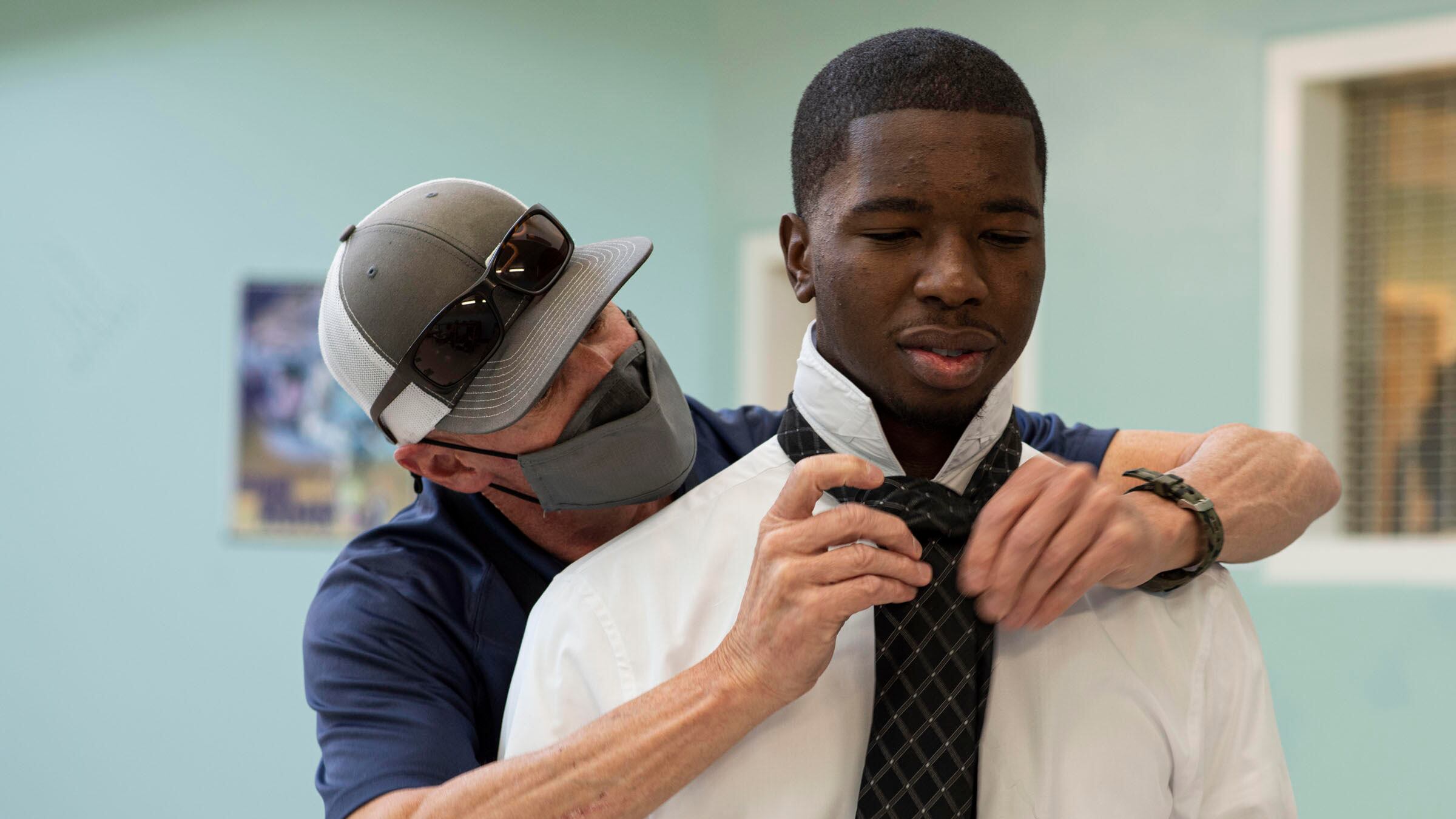For nearly three decades since Oregon voters passed Measure 11, the “one strike and you’re out” sentencing law has evoked impassioned feelings. The most impressive part of the podcast Public Plea is that it manages to include so many of them.
For two years, students and alumni of the University of Oregon’s School of Journalism and Communication, led by professor Ed Madison, interviewed people who shaped, and were shaped by, Measure 11. That includes both the young people sentenced under the law and the families of crime victims.
Reporting that balances more than one perspective is sometimes derided for false equivilence or “bothsidesism”—that is, failing to take a moral stand on an issue. But in an interview with WW, Madison says he found numerous people who considered their stance on Measure 11 one of moral conviction.
And they were opposing stances.
“What surprised me was Ronita Sutton, who lost her son to gun violence and is now a victims’ rights advocate—but not certainly not by choice,” Madison says. He asked her if her views were tempered by the disproportionate effect that mandatory minimum sentences have on communities of color. “And she was like, ‘No, you should know right from wrong when you’re this age.’”
That’s just one noteworthy moment in a five-episode podcast and an accompanying documentary that airs Monday night on Oregon Public Broadcasting.
The examination could hardly be better timed. Portland is enduring a rise in gunfire that is killing Black people at a rate far higher than in most American cities. That deadly trend, along with dramatic spikes in auto thefts, is fueling a law-and-order backlash that’s likely to be felt at the May ballot box. Kevin Mannix, the author of Measure 11, is seeking elected office again—and organizing a lawsuit against the governor for commuting sentences.
That makes the kaleidoscopic angles of Public Plea especially interesting: As more Oregonians are ready get tough on crime, the podcast looks at the results from the last such effort.
Related: Oregonians sent a frightened 17-year-old boy to prison. My family helped.
Madison says prosecutors he spoke to believe that voters are fed up with criminal justice reforms: “The pendulum will swing the other direction, and because of this significant rise in gun violence, people will once again rally behind tougher legislation. So, yes, history definitely does repeat itself.
“The thing I think that’s different,” he adds, “is that the brain development science tells us things that we did not know in 1994, about young people in particular. And then there’s a lot of valid research that says the tough-on-crime approach is ineffective—it’s not a deterrent and it doesn’t work.”
What Madison most hopes is that people who weren’t old enough to vote in 1994 will listen to this podcast or watch the documentary before the next election—and consider the consequences of criminal justice policies.
“If you’re under a certain age, under 35, you may not even be aware there is a Measure 11,” he says. “We want people to just be aware and to weigh in and have an opinion about it, and decide how to act accordingly.”
The documentary Public Plea airs at 9 pm Monday, Feb. 7, on Oregon Public Broadcasting. The podcast can be found here.

